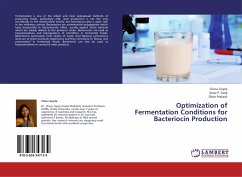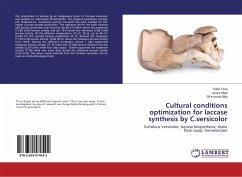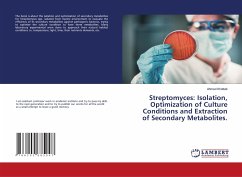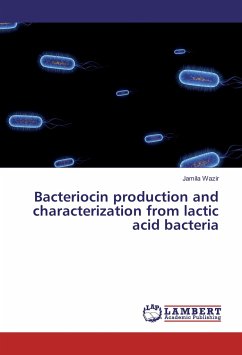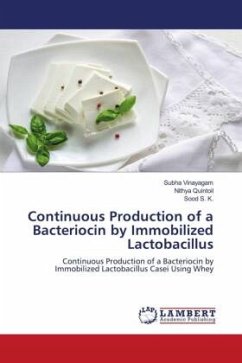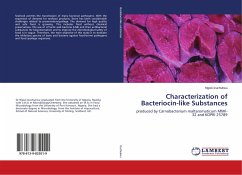Fermentation is one of the oldest and most widespread methods of preserving foods, particularly milk. Acid production is not the only contributor to the antimicrobial activity, but bacteriocins play a major role in the inhibitory activity. Bacteriocins are antimicrobial polypeptides which have bactericidal or bacteriostatic effect, usually against those bacteria which are closely related to the producer strain. Bacteriocins are used as biopreservatives and bioregulators of microflora in fermented foods. Bacteriocins particularly from strains of Lactic Acid Bacteria Lactococcus lactis are of great economic importance and they contribute to flavour and preservation in fermented foods. Bacteriocin can also be used as biopreservatives in canned & meat products.
Bitte wählen Sie Ihr Anliegen aus.
Rechnungen
Retourenschein anfordern
Bestellstatus
Storno

